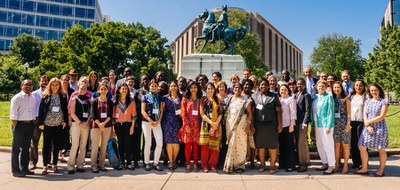FCMC participates in Gender and REDD+ Workshop

The event organizers, along with other partners, identified the workshop as a critical moment for exchanging information on methodologies and roadblocks; increase awareness for the issues; eliciting best practices; strengthening capacity to address gender concerns; and further informing safeguard development, among others. Additionally, the workshop was an opportunity for participants to identify future actions, at all scales, to continue addressing gender considerations in REDD+. The event aimed to foster collaboration and learning, as well as map key actions and opportunities for strengthening gender considerations in REDD+. In the future, there will be greater synergies between organizations that were able to meet and share lessons learned at the workshop.
The workshop was geared toward technical government representatives and practitioners with expertise on gender and REDD+, specifically drawing from concrete projects at the international, national and sub-national levels. Participants included representatives from the workshop host organizations, as well as United Nations Development Program (UNDP); the Association of Indigenous Village Leaders in Suriname; Rights and Resources Initiative (RRI); World Wildlife Fund (WWF); the Ministry of Forestry of Nepal; the Forestry Commission of Ghana; Tanzania Forest Conservation Group; the African Wildlife Foundation (AWF); the International Institute for Environment and Development (IIED); Wildlife Conservation Society (WCS); Conservation International; the Ministry of Environment of Ecuador; and many others.
Maggie Roth, FCMC’s manager of communications and knowledge management, represented FCMC at the three-day event—attending sessions, participating in group discussions and brainstorming, and contributing expertise on best practices for communicating gender and REDD+ issues to a diverse audience. FCMC was highlighted and used as a positive example of inclusion of gender considerations as a part of REDD+ national strategies and safeguard information systems. FCMC was frequently referenced as a successful USAID-initiated activity that consistently identifies relevant gender issues in the context of REDD+ and demonstrates how gender considerations can be incorporated into effective REDD+ programming. A suite of FCMC products was included on flash drives given to workshop participants that made up an electronic gender and REDD+ “library."

